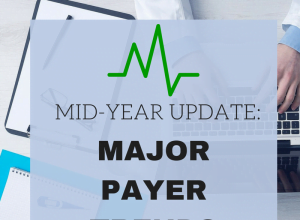I often hear from hospitals that they’re being squeezed greatly on cost and not getting paid enough by government and private payers. I have some sympathy for this argument, but on the other hand somehow this country outspends every other country by at least two to one, and hospitals are a big part of the reason.
So what gives?
I often hear from hospitals that they’re being squeezed greatly on cost and not getting paid enough by government and private payers. I have some sympathy for this argument, but on the other hand somehow this country outspends every other country by at least two to one, and hospitals are a big part of the reason.
So what gives?
An article in yesterday’s Wall Street Journal (One Way for Hospitals to Cut Costs of Tests), reporting on an Archives of Surgery study, provides part of the answer.
Making physicians aware of the costs of blood tests can lower a hospital’s daily bill for those tests by as much 27%, a new study suggests.
Researchers simply told the doctors what things cost.
“There was no telling anyone when, or when not, to order a particular test,” says Elizabeth Stuebing, a study co-author…
But she says it shows what can happen merely by giving physicians information they don’t usually have. “We never see the dollar amount of anything,” Dr. Stuebing says. “The first week I stood up and said that in the previous week we’d charged $30,000 on routine blood work and I could hear gasps from the audience.”
The situation doctors are in today is sort of like being sent to a store and told to get what they need, but not paying for the goods and not knowing the prices of the items or even which items are expensive and which are cheap. That’s certainly a formula to run up the bill, even if inadvertently –which is what the “gasps from the audience” indicate.
The experiment was analogous to putting prices on the items in the store, but still letting the shopper buy whatever they thought they needed. That’s a step in the right direction but not exactly draconian from a cost control standpoint! (Of course there are some cost control measures hospitals impose centrally, which is different from my shopping analogy.)
I have mixed views on whether physicians should be exposed to what things cost. Pricing in hospitals is not like pricing in stores, because “charges” are often a small fraction of what’s ultimately reimbursed. I don’t know that I want doctors making tradeoffs based on faulty data or an incomplete understanding of patient preferences.
Still, letting doctors know what’s cheap, moderately priced and expensive is a good idea. In this case it seems to have held physicians back from ordering things that weren’t needed. And it does give a peek at how bloated expenditures in medicine are today.
It also underlines the fact that we are far from the point where consumers can control costs by having “skin in the game.” Do we expect patients to challenge daily blood draws on the basis of their cost and medical necessity? I don’t.







